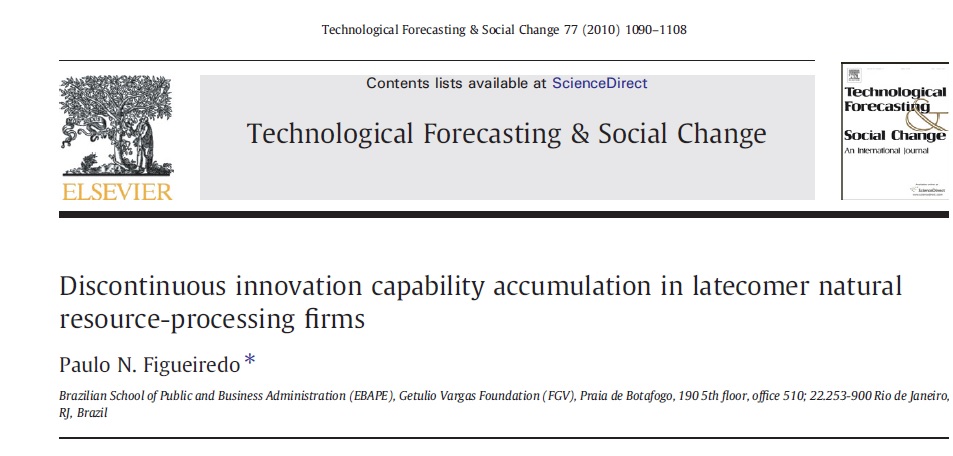
Most of the studies that describe the building of innovation capability in emerging and developing economies have focused on the ways in which latecomer firms develop continuously towards advanced capability levels along existing technological trajectories, particularly for the assembled products industries, especially in Asia. A slightly different approach is adopted herein by focusing on pathways of discontinuous capability building of firms in natural resource-processing industries. By drawing on evidence from a variety of case studies taken from 13 forestry, pulp, and paper firms in Brazil in the period 1950–2007, it was found that: (1) in contrast with the majority of case studies reported in the literature, the pathways followed by firms in their accumulation of innovation capability involved a qualitative departure from the established technological trajectory at an early stage in the development of their capability; (2) the pathways of firms along the new technological trajectories were nevertheless characterised by a high degree of variability (from intermediate to world leading innovators) in terms of the levels and speeds of the accumulation of innovation capability; (3) firms that have attained progressively higher levels of innovative performance have more rapidly developed a combination of internal and external research-based arrangements in order to undertake increasingly complex, but firm-centred innovation efforts. This paper sheds some light on some of the discussions that relate to the role of natural resources in the patterns of industrial progress and growth in those countries endowed with particular natural resource-based industries. It also provides a methodological contribution to the study of the long-term innovation strategies that make use of the dynamics of capability building, especially within natural resource processing industries.
Figueiredo, P. N. (2010). Discontinuous innovation capability accumulation in latecomer natural resource-processing firms. Technological Forecasting & Social Change 77 (7): 1090-1108 DOI: https://doi.org/10.1016/j.techfore.2010.02.004